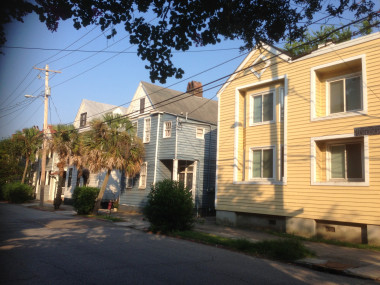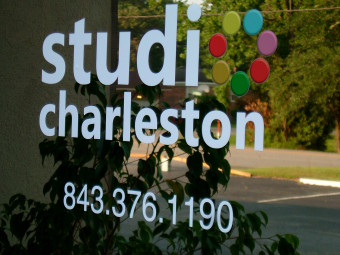A
My mind makes a game of it − conjuring classic films from the concrete jungle then putting myself in the sequel of my own creation. Call it an indulgent folly of imaginative minds.
Although I was immediately struck by the immense beauty of historic Charleston when I first visited, I was surprised that it didn’t evoke an emblematic film, which showcased the city like so many other cinematic cities along the east coast of the USA.
I asked around and got uncertain answers such as The Patriot and Forrest Gump, but I was after a counterpart to Ferris Bueller’s Chicago or the Ghostbusters’ New York. When I recently put the question to Studio Charleston founder, Harald Galinski, he explained that film incentives along with the versatility of abundant filming locations all in close proximity is what makes the Charleston region a desirable filming destination with an extensive filmography.
“The Charleston region and South Carolina offer an incredibly diverse canvas for filmmakers. Dear John is a perfect example where an amazing production designer was able to recreate Afghanistan, Africa, Germany and an Eastern European village all in Charleston – which otherwise would have been shot in Morocco.”
Galinski would know since he was part of the team who brought Relativity Media’s Dear John to Charleston in 2010, the last big budget feature to truly spotlight Charleston.
In a story many newcomers would appreciate, Galinski fell in love with the city during eight months of filming.
After deciding to call Charleston home he founded Studio Charleston, the state’s first turn-key creative and functional production space.
I’ve noticed in the past three years living in Charleston the once rare sight of a film crew now seems common. With shows like Army Wives, Southern Charm and Reckless it appears Charleston has suddenly exploded as a television hotspot. I asked Galinski if this was an indication of the growing popularity of the city − was Charleston and the South suddenly cool?
“Reckless was one show written for Charleston, but the producers made it clear that if the new incentives were not passed they may have not shot the show in South Carolina. I can honestly say that since 2006, most of the projects, both film and TV came to SC because of the incentives.”
Galinski helped successfully lobby for the new film incentives after they were dropped in 2012. Along with starting the South Carolina Film Council, which currently has over 1000 members, in a short time Galinski’s efforts have markedly helped stimulate local production.
This growth is evident with shows like South from Hell starting production in Charleston. Meanwhile Walking Dead creators are about to commence filming a pilot outside Columbia. Not to be overlooked in the bright lights of location filmmaking is Moondog Animation Studio.
Moondog didn’t overlook Charleston when deciding on a location with incentives to establish their animation studio last year. Founder/CEO Bryan Ransom said it was Charleston’s international charm, with a mix of low-cost living and high-quality coastal lifestyle that won them over. But since the magic behind animation storytelling isn’t tethered to the reality of location filming I asked Ransom if the city is important where he films.
“Digital animation is a unique medium that blends art and technology and Charleston is a unique area that does the same. Its history of art and design has continued to evolve while in the background you can find a growing tech community. This creates an atmosphere that indirectly affects the film. Charleston let us imagine great things and create beautiful stories with no creative or technological limits. What more could you ask from a town?”
Given the recent spate of local and regional productions I was curious what Ransom thought about the improvement in the local film and television industry.
“Never settle! The SC film industry is in a small season of growth, but this can disappear as quickly as it appeared. Incentives are one piece of the puzzle. We need to avoid becoming complacent and continue to push for competitive incentives. There are literally billions of dollars in filming that can be taken away from Georgia and Louisiana. South Carolina has taken steps in the right direction but they are not there yet. “
While Galinski cites additional production infrastructure is needed to increase the level of local media productions, he says there are more immediate concerns critical to the state’s film and television industry.
“We still need to push for a new SC Film Commissioner as soon as possible, which we have not had since 2010. I am also trying to work with local and regional authorities to create a Charleston Area Film Office.”
The dynamic success of the Charleston International Film Festival, which recently concluded its 7th festival year only adds to the bounty of the local film and television cultural landscape. With increased support from state legislators, along with the tireless and creative efforts of industry leaders there is every reason Charleston should continue to emulate the successful film and television growth in neighboring states.
















